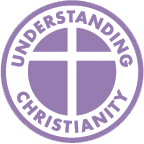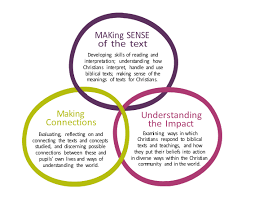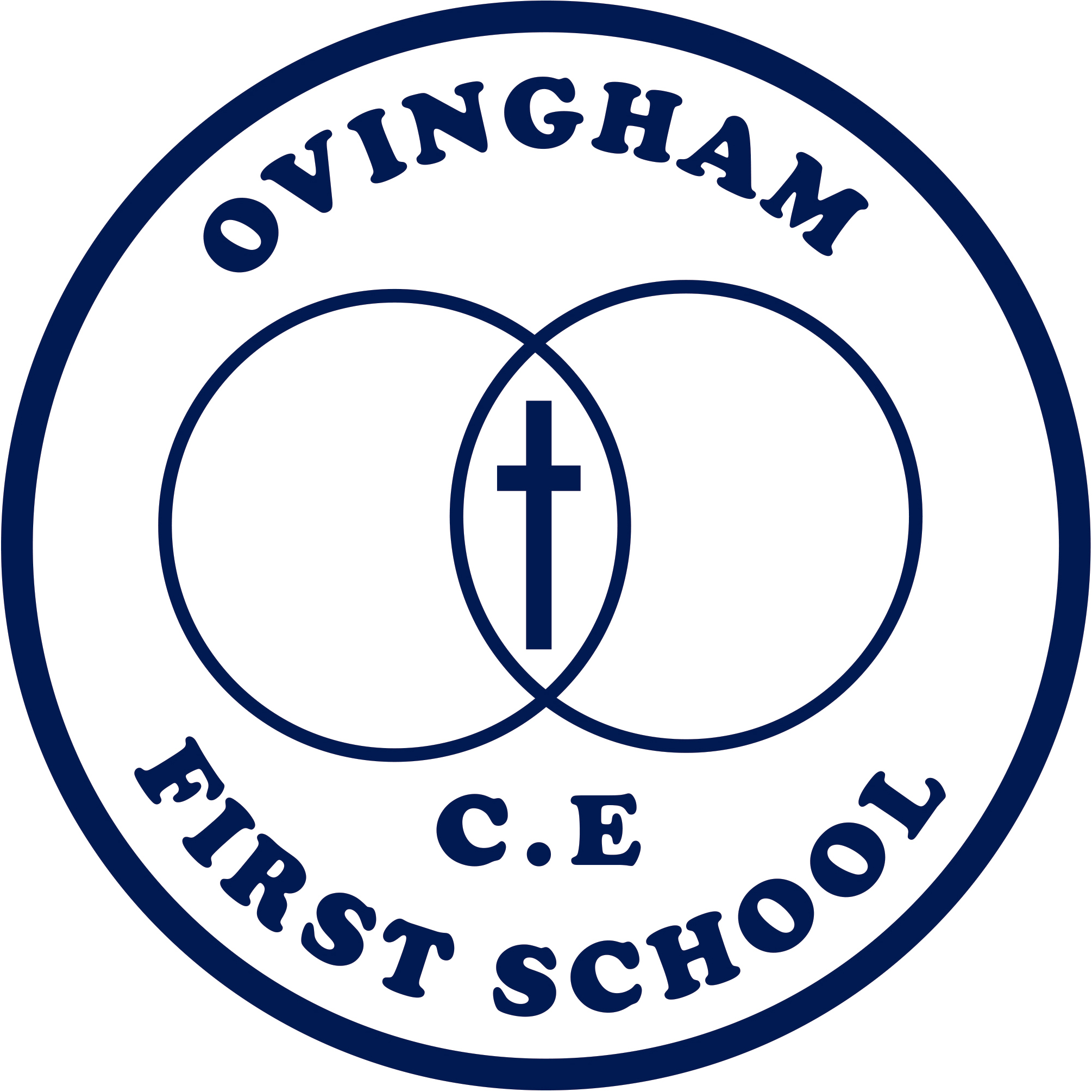The Intent of our RE Curriculum
Our RE curriculum is rich and varied, enabling children to gain a thorough knowledge, and understanding of a range of faiths and world views. As a Church of England school, the teaching of Christianity is at the heart of our RE curriculum. Our enquiry approach engages with core theological concepts and pupils’ own understanding of the world to develop their wider religious literacy. We aim to provide opportunities for children to understand and to make links between beliefs, practices, and value systems of the range of faiths and world views studied.

We are dedicated to providing high quality, engaging RE teaching and learning opportunities to reflect the importance of RE within our school community.
We believe that RE at Ovingham CE First School should enable all our children to:
- Know about and understand Christianity as a living world faith, by exploring core theological concepts.
- Develop knowledge and skills in making sense of biblical texts and understanding how they impact the lives of Christians.
- Make connections between their own growing understanding of religion, themselves, the world, and human experience.
- Gain knowledge and understanding of a range of religions and worldviews appreciating diversity, continuity, and change.
- Recognise the influence of religion on Britain’s cultural heritage and in the lives of individuals and societies in different times, cultures, and places.
Spirituality in RE – Religion and Worldviews
The Church of England’s ‘Statement for Entitlement’ outlines the aims and expectations for Religious Education in CE schools and guides this school’s approach to RE and spirituality. The role of RE is neither to promote nor undermine organised religion but part of its purpose is to provide structured opportunity for consideration of the non-material aspects of life. RE can contribute dynamically to children and young people’s education by provoking challenging questions about meaning and purpose in life, beliefs about God, ultimate reality, issues of right and wrong and what it means to be human. It can support their own discovery of their personal spiritual journeys of meaning, purpose and value. RE allows children to reflect upon and share their own knowledge and lived experiences, plus find out about the experiences, beliefs and traditions of other people. Through this process, children expand their knowledge, begin to shape their own beliefs, form opinions and add breadth to their world view.
At Ovingham we offer an inspiring RE – Religion and Worldviews curriculum and engaging syllabus that offers pupils the opportunity to flourish and thrive.
High quality RE lessons at Ovingham C of E First School offer children opportunities that challenge their thinking through Big Questions. They critically reflect on their own religious, spiritual and/or philosophical convictions and are equipped with the skills to confidently discuss religious, spiritual and philosophical ideas. Enabling our children to achieve religious literacy through the ability to hold balanced and well-informed conversations about religion and belief.
How we Implement our Curriculum
As a Church of England Primary School, Religious Education is a core subject within our curriculum.
We teach RE according to the Northumberland Agreed Syllabus 2022-2027 and use ‘Understanding Christianity’ as a resource to support our teaching of Christianity. This particular resource has been carefully selected to support us in delivering curriculum content through intriguing key questions and allowing children to build upon prior knowledge.
build upon prior knowledge.
We teach eight core concepts of Christian belief and revisit these a number of times as children move throughout the school.
These core concepts can be found in our RE Curriculum Overview below. Overall, they tell the ‘big story’ of the Bible and are taught through key questions.
Learning in each concept is encountered via three elements:
 Making sense of the text: children learn to read and interpret biblical texts and make sense of its meaning to Christians.
Making sense of the text: children learn to read and interpret biblical texts and make sense of its meaning to Christians.
Making connections: children evaluate and reflect on texts and concepts they have studied and learn to make links to their own lives and ways of understanding the world.
Understanding the impact: children examine ways in which Christians apply the Bible day-to-day and how Christian thought has influenced 21st century thinking and living.
We value the importance of our pupils’ understanding where in the ‘big picture’ of the Bible each concept fits in.

Children regularly refer back to the ‘big frieze’; an illustrated timeline which supports pupils in visualising Christianity over time.
Our RE curriculum is enriched further with daily Collective Worship, visits from members of our parish, regular visits to our local church and a Prayer Space in school to reflect on our learning journey.
Christianity is the primary religion covered; however, each year group explores at least one other major world faith during the year as follows:
Reception: Christianity and opportunities to encounter other religions including, Hinduism, Judaism, and Islam.
Year 1: Christianity and Judaism
Year 2: Christianity and Islam
Year 3: Christianity, Islam, and Judaism
Year 4: Christianity and Hinduism
The Impact of our Curriculum
Our RE curriculum is rich and varied, enabling children to gain a thorough knowledge, and understanding of a range of faiths and world views. By the time children leave our school they will:
- Ask and offer possible answers to challenging questions about the meaning of life, beliefs, nature of reality and morality.
- Have a secure understanding and knowledge of the religions studied and be confident to answer ultimate questions.
- Have the ability to ask significant and reflective questions about religion and demonstrate a good understanding of issues relating to the nature, truth, and value of religion.
- Have a sense of self, identity and belonging to flourish within the community and be responsible citizens.
- Show respect, tolerance and understanding of all religions and beliefs.
- Have a strong understanding of how the beliefs, values, practices, and ways of life within any religion come together.
- The ability to link the study of religion and belief to personal reflections on meaning and
purpose. - The ability to exemplify the School’s Christian values in all aspects of life that are rooted in the teachings of the Bible.

